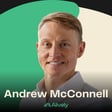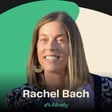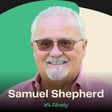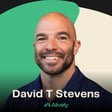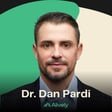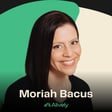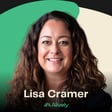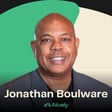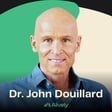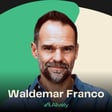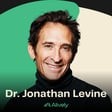
Gut Health Impacts Mental Health with Clarissa Lenherr - E39
Struggling with digestive issues without noticing its toll on your mental health is a common challenge. Many people find themselves feeling anxious or stressed, unable to pinpoint that the root cause could be related to their gut health. The connection between digestive wellness and mental well-being is frequently underestimated, leading to treatments that focus on symptoms in isolation rather than understanding the holistic interplay between the gut and the mind. In this episode, we explore the critical link between gut health and mental health, and how dietary and nutritional changes can significantly enhance both physical well-being and emotional resilience.
Clarissa Lenherr is a nutritional therapist focusing on the intersections of diet, lifestyle, and health optimization. After overcoming her own health challenges, Clarissa founded her practice, specializing in digestive health and helping those with long-standing issues find relief through personalized nutrition plans. Alongside her one-on-one consultations, Clarissa is a dynamic public speaker, having shared her insights with people and companies across the world! Her work in nutritional therapy extends to formulating supplements and consulting for food and beverage brands, all while maintaining a balanced approach to health and wellness.
“All health begins in the gut.” - Clarissa Lenherr
In this episode you will learn:
- Clarissa's personal journey from struggling with health issues to becoming an advocate for nutritional therapy.
- The concept of nutritional therapy and how it integrates holistic health with dietary practices.
- The importance of looking at health as a whole system rather than focusing solely on specialization.
- How Clarissa integrates practices like intermittent fasting and diversity in diet into her daily nutritional routine.
- Clarissa's approach to balancing professional life, personal health, and social connections, emphasizing mindfulness and presence.
- The role of supplements in Clarissa's health regimen, highlighting the importance of personalization and quality.
Resources
- Connect with Clarissa on Instagram: https://www.instagram.com/clarissalenherrnutrition/
- Explore Clarissa’s blog and recipes: https://clarissalenherr.com/blog/
- Shop all the products Calrissa mentions in this episode: https://alively.com/products/clarissa-lenherr
This podcast was produced by the team at Zapods Podcast Agency:
https://www.zapods.com
Find the products, practices, and routines discussed on the Alively website:
https://alively.com/
